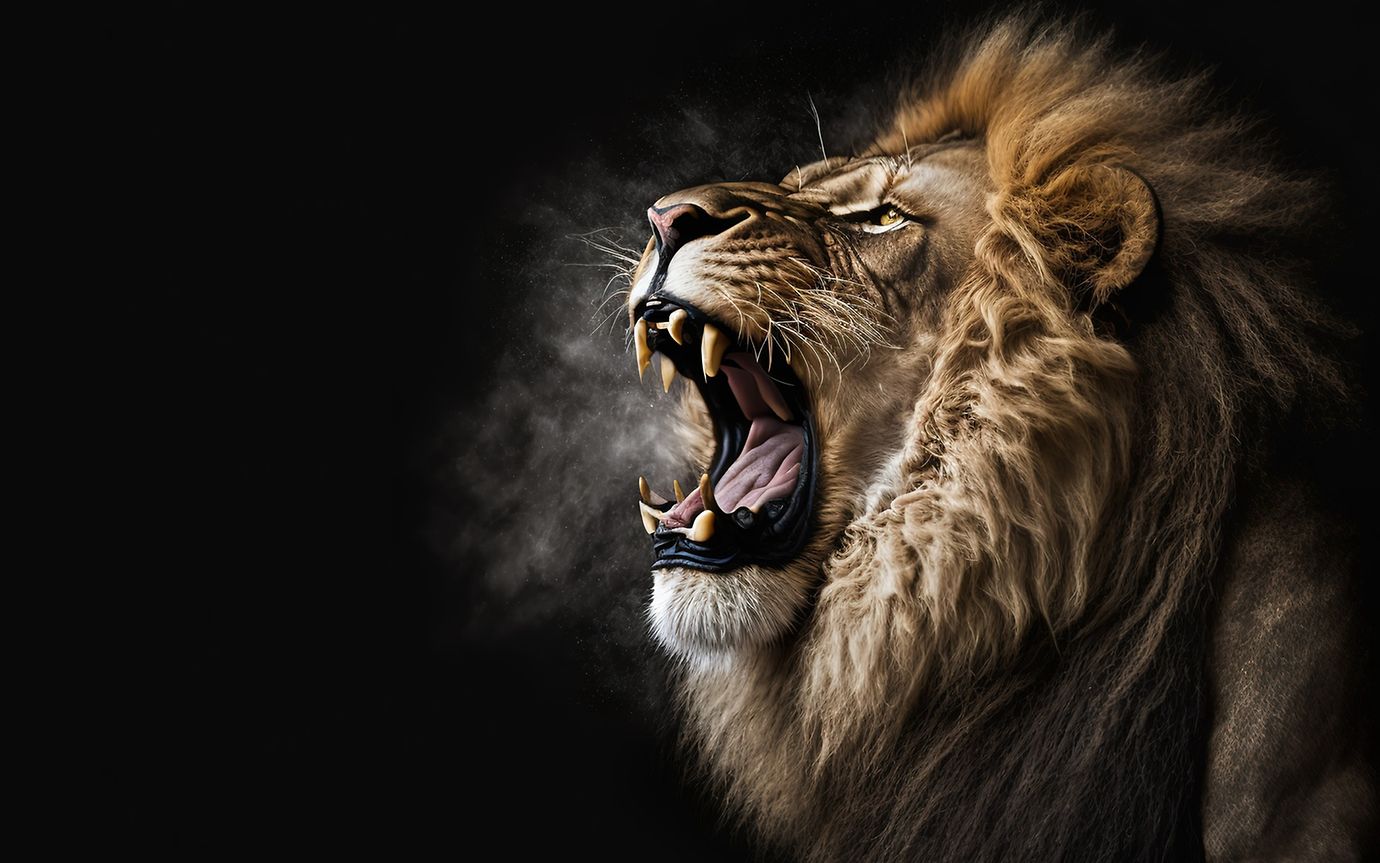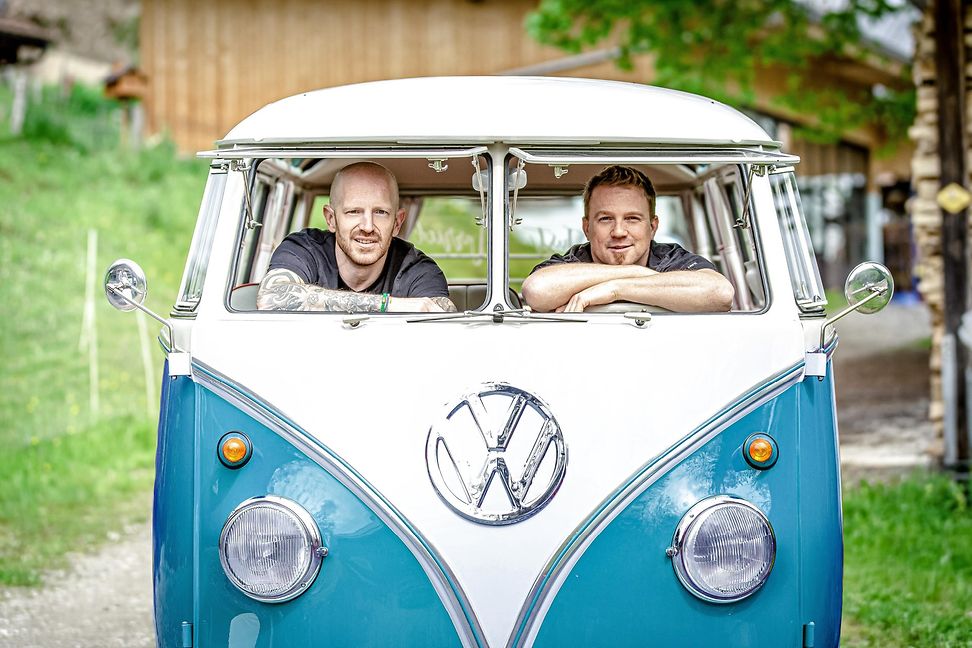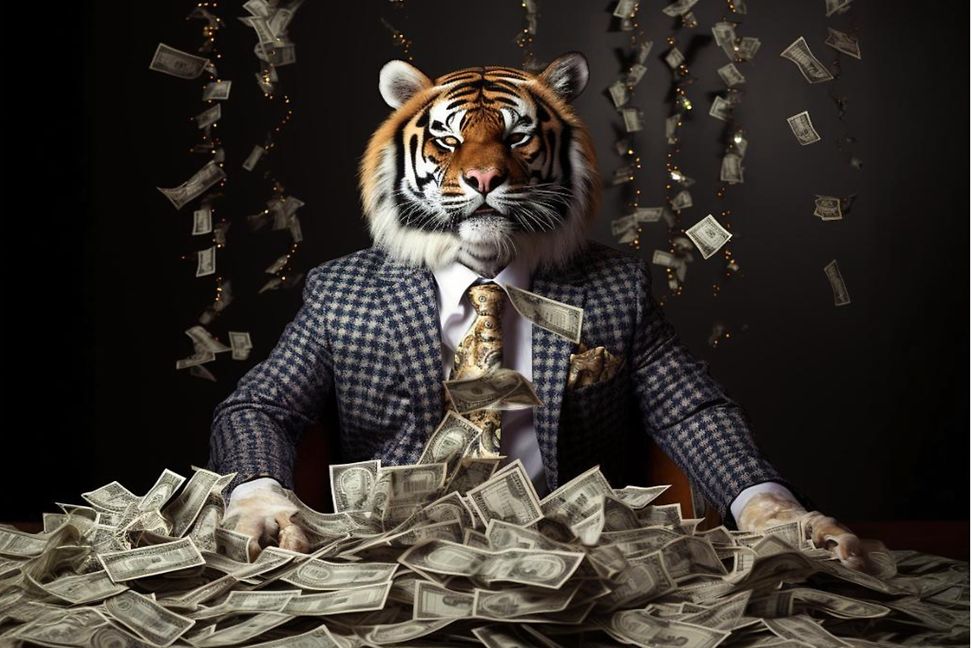在此处更改您的语言和 LGT 位置。
私人客户的数字平台
登入 LGT 智能银行
金融中介机构的数字平台
登入 LGT 智能银行 Pro
常见问题解答 (FAQ)
LGT 智能银行帮助
常见问题解答 (FAQ)
LGT 智能银行专业版帮助
What happens after TV investment shows like "Shark Tank" and "Dragons' Den" - or "Lion's Den" in Germany - finish filming? Do entrepreneurs get the deal they were promised? And would they do it again? We talked to some start-ups to find out.

"The morning before filming started I was convinced I wouldn't want to invest in anything. But then you hear the story, the enthusiasm…you get an idea of the market potential and well, you change your mind."

This is entrepreneur and billionaire Carsten Maschmeyer describing his experience on "Die Höhle der Löwen" (The Lions' Den, or DHDL for short) in a recent podcast. Maschmeyer is one of the five investors on the German version of the investor-meets-entrepreneur reality TV format.
What Maschmeyer describes is the essence of what these shows, which have been adapted for markets around the world, are all about, namely, attracting investment for start-ups with a good business idea. Entrepreneurs present their ideas to five successful investors, and then get a deal or not, depending on how much potential the investors think it has. The format is always the same, what changes is the language, the investors (and the animals they are supposed to embody), and the companies, of course.

Laura Matter is a fan of these shows, and regularly watches the German version. But she's not your typical viewer - she's actually been on the show. Matter, who hails from Winterthur, Switzerland, appeared on the Swiss iteration shortly after founding the speed dating platform noii in 2022.
"It's a no-brainer for start-ups and young entrepreneurs to take part in 'Die Höhle der Löwen'," says Matter. When she appeared on DHDL, her product was still in its infancy. "All we had was an idea and a Zoom link for the dates," she says. In the meantime, noii has developed its own platform and now employs eight people.
But Matter doesn't credit the TV show for the company's success. "We got a deal, but the investment didn't pan out," she explains. The investors and the start-up weren't able to reach an agreement during the follow-up negotiations, some of which took place much later. In the end, there was no deal. Still, Matter has no regrets. "We gained valuable experience and were able to grow our network," she says.

If you ask Lukas Imhof, CEO of Lucerne-based start-up parknsleep, he will tell you that it's pretty normal for these investments not to materialise. The co-founder and CEO of the sharing platform for camper van pitches was invited to take part in the show not once, but twice. "The second time I said yes", says Imhof. However, he didn't want to get his hopes too high, and so he also turned to crowd investing to secure funding.
Imhof, who took part in the show in February 2023, says it was a "great experience". "Even just being in that setting, with the studio, microphones and cameras, and then presenting in front of the Lions, taught me a lot. You really have to be able to deliver." But when it comes to concrete outcomes, he explains that "appearing on the show didn't have any quantifiable benefits; it didn't translate into more visits to our website."
The deal that "Lion" Roland Brack offered him didn't come to fruition either - but that was a mutual decision. According to Imhof, other financing options, such as crowd investing via the OOMNIUM platform, are more valuable for parknsleep. "As a tourism company we are better served by a broad range of shareholders and investors than by a single investor," he says.

However, sometimes the deal does go through. For example, feey, a houseplant service based in Flawil, Switzerland, was featured on the Swiss version of DHDL in 2021, and secured a record CHF 1.2 million in exchange for 20 % of the company's shares. All five Lions and Lionesses committed to making an investment. "Our customers and family and friends insisted we take part in the show," says feey's Jil Claire Schulz. At the time of filming, the company had been in business for a year and a half and sales were strong.
But it was only after filming that the "real" negotiations started. "What we did during the show was lay the foundations for negotiations. After that, we had to work out the serious, legally binding details," says Schulz. "The show got us three things," she continues, "media attention for our young company, money for projects, and access to people who were interested in investing." Schulz believes that companies should look at the programme as a platform where they can negotiate financing. "You have to define the conditions and reach an agreement," she says.
In the UK, the show is known as "Dragons' Den". After almost 20 years, it's still as fresh as when it began, adapting along with the evolution of business and entrepreneurship. Entrants in the mid-noughties were often hair-brained inventors who'd experienced eureka moments. Innovations like the umbrella vending machine and the waterless egg boiler made for superb television, but - perhaps to the annoyance of those Dragons who invested - failed to perform on the market. As the entrepreneurs have changed into slick founders with bankable businesses and a solid grasp of the numbers, the pitches have become more polished, too.

Jasmine Wicks-Stephens ventured into the den during the most recent series, hoping for an investment for her cosmetics brand Faace, which focuses on simplifying skincare. Her pitch resulted in a GBP 60,000 injection of capital. Preparation appears to be key for this new cadre of entrepreneurs. "I watched every episode that I could find online," says Wicks-Stephens. "I took down a note of each question that was asked every single episode that I watched. And then made a cheat sheet with my version of an answer to every one of those questions."
The show positions the Dragons' investment as a golden ticket to the big time. But there's more for entrepreneurs to gain than a boost in capital. Teddie Levenfiche, co-founder of Perfect Ted, a matcha drinks brand, describes the instant boost that arrived immediately after his deal on the show: "The business changed overnight with the episode's airing," he says. "When we went into the den we were three people around the kitchen table. Now we're over twenty."
It wasn't just the money, it was the exposure. "People just knowing about our brand and our products increased our sales." Levenfiche describes meteoric year-on-year sales following Perfect Ted's appearance on the show in March 2022: "In our first year we did GBP 200,000 in sales. Then we went into the den. And the next year we did GBP 1 million," he says. "Now we're doing over GBP 15 million in sales. That's probably a good indicator of the impact."

But it's not unusual for deals to fall through after these shows. An article published by Forbes magazine about toy manufacturer Pinblock offers some insights into one entrepreneur's experience on "Shark Tank", which airs in the US. After giving his pitch, the company's founder, Vladislav Smolyanskyy, accepted a deal worth USD 100,000 from Kevin O'Leary, who also promised to put him in touch with industry giants such as Mattel. Four months later, O'Leary withdrew his investment. Smolyanskyy was devastated; he'd already spent the USD 100,000 he'd been promised. Ultimately, however, this setback wasn't the end of the road for Smolyanskyy, whose company is now selling its products online. Showbiz at its best!

The original entrepreneur-meets-investor reality TV format was launched in Japan in 2001 as "Tigers of Money". The show has gone on to become a huge international success. It has been adapted for over 50 other countries, including Bangladesh, India, and the USA, where it airs as "Shark Tank", and Canada and the UK, where it runs under the "Dragons' Den" banner. In Switzerland, the show first aired in 2014, and is called "Die Höhle der Löwen" (The Lions' Den).